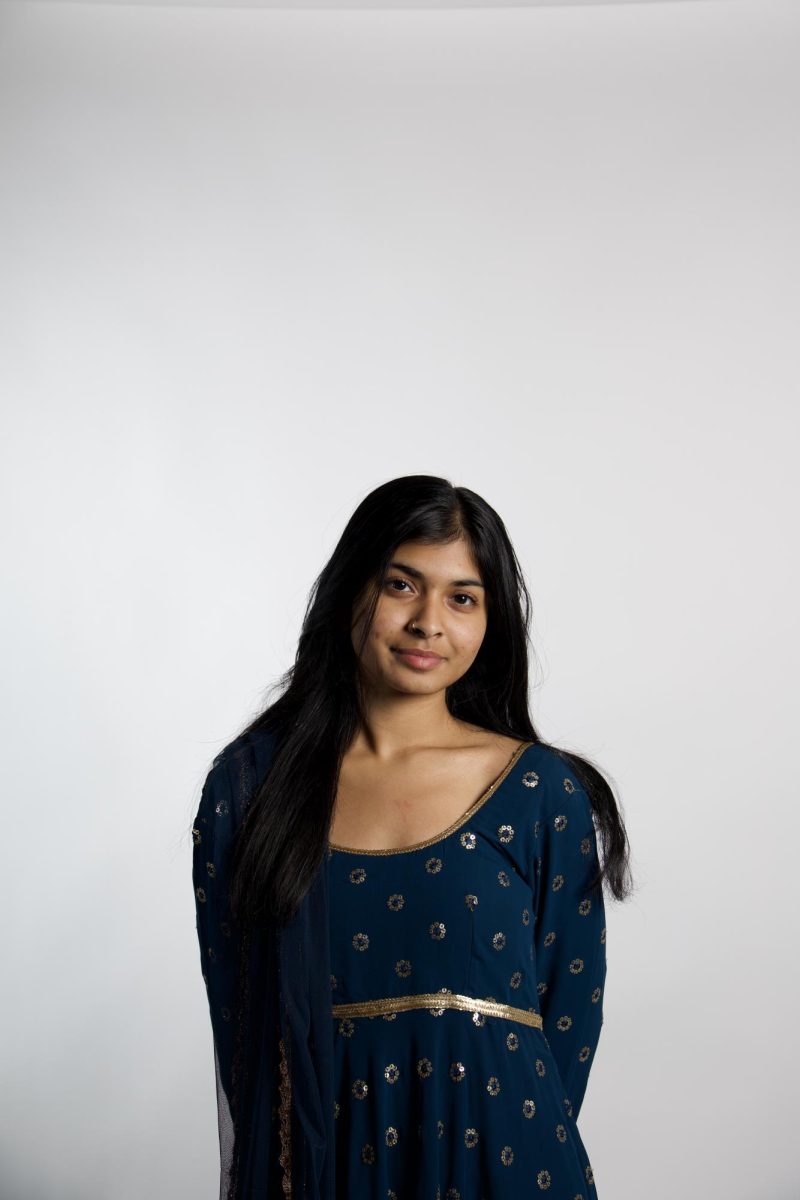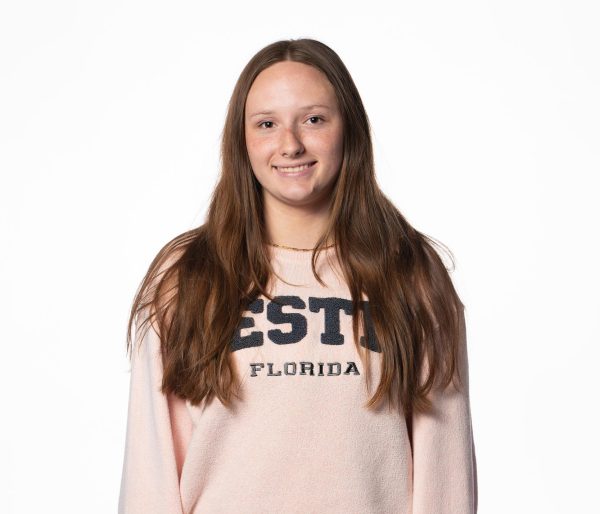The sweet sound of “Solo Suites for Cello” by Johann Sebastian Bach bellows from his cello and rings throughout Gergo Szilagyi’s (9) household. His fingers dance across the strings. The faint clucks of his family’s 13 chickens float in from the window. Smells from the kitchen waft across rooms, telling the kids that dinner is ready. After her concert, Eva Kozma, Gergo’s mother, prepares töltött káposzta, a family-favorite traditional Hungarian dish of stuffed cabbage. The door slams as Gergo’s father, Laszlo Szilagyi, returns from boating at Creve Coeur Lake. As they gather over the dinner table, the family of five share stories and enjoys each other’s company, the mix of English and Hungarian blending like the flavors in their meal.
“At home, we still speak Hungarian with our parents, but the kids speak English to them, and they just respond in Hungarian,” Gergo said. “Every other summer, we visit our grandparents in Romania. My mom cooks really traditional Hungarian dishes pretty often, so food is a big part of what’s still important to the culture.”
Gergo’s parents were born in Târgu Mureș, a Trannsylvanian town historically part of Hungary. The essence of Hungarian culture persists in this geographically Romanian region.
“[There is a] battle between ‘Am I Romanian?’ or ‘Am I Hungarian?’” Gergo said. “Because I’m not actually Romanian. Just after World War I, Romania got Transylvania instead of Hungary because Austria-Hungary lost, so my entire family is Hungarian, but they just live in Romania.”
This internal conflict of ing different cultures doesn’t stop with Romania and Hungary. It continues into Gergo’s everyday life through the balance of honoring his Hungarian heritage while embracing the American culture he is continually surrounded by outside of his home.
Language
Language is objectively seen as one of the most significant advancements for human life and is a crucial cornerstone of the Szilagyis’ heritage. Speaking Hungarian is an important value maintained in their household.
“My grandparents only speak Hungarian, so they don’t know English,” Gergo said. “I think [that] preserving the language is an important part because if we can’t speak Hungarian, then we can’t pass down our stories and experiences.”
Kozma shares this belief and is concerned about her children’s ability to stay sharp on Hungarian when surrounded by English. She makes an effort to speak Hungarian in their home to keep the language fresh on their minds.
“Keeping the language, I think, is the most important thing, and being proud of it,” Kozma said. “Not feeling like because their parents’ English is not as strong, I don’t want them to feel embarrassed about that because I think there are times when I may say something the wrong way, and they could laugh at that.”
Gergo has been attending the Ladue School District since elementary school, but many don’t know that his name has been pronounced wrong for those nine years.
“My name isn’t actually pronounced Geer-goo,” Gergo said. “If you walk up to a random person on the street and try to tell them how to pronounce my name, they’re probably not going to be able to get it for the first five tries. So, my actual name is pronounced Gher-ghou, and my last name is See-lahg-yee.”
Music
The Szilagyi family is no stranger to artistry. Szilagyi is a former sculpter, while Kozma is the assistant principal second violinist at the St. Louis Symphony Orchestra and has made a career out of her talent. All three of their children learned to play an instrument from a young age, just like their mom.
“I feel like that’s one thing that I wholeheartedly can share with them,” Kozma said. “Being able to play a musical instrument is a gift in so many ways to me. I feel like the talent was given to me by God. Once you have a gift like that, you want to develop it and be able to share it with others, so that’s very meaningful for me.”
For generations, Gergo’s ancestors have had a strong musical inclination. The majority of men on his mother’s side of the family were typically cellists, while the women were usually pianists or violinists. Gergo’s cello has been passed down to him through the family’s lineage.

“That cello has been such a major thing in our family,” Kozma said. “For one thing, my dad had played it as I was growing up. That was his instrument, but he got it from his father. It has a beautiful sound. My grandfather had played it for many years, and he was not only a cellist, but he was a composer and a conductor. So, the cello was used by my grandfather, and then given to my dad, my brother played it and now it’s Gergo’s.”
Gergo has been playing the cello for nine years, since he was around 9. He devotes anywhere from 7-10 hours a week for practicing school and private assignments and to prepare for festivals, orchestras and other odd gigs.
“In 2020, we went to a family friend’s house and played in a quartet, when my brother still played the violin,” Gergo said. “It was my mom, me, my sister and my brother playing Christmas music for a crowd of 15 people.”
Gergo’s infatuation with music is not only demonstrated through his skillful cello playing, but also in his fascination in the beauty of traditional Hungarian instruments.
“In many parts of the Midwest, there’s this indigenous fiddle music,” Gergo said. “It’s different from the standard violin, but in Romania, they play it even differently than that. It’s resting down on their lap, where it’s almost completely on its side.”
Gergo’s intense passion for music also translates into his talent, allowing him to stand out for his style, mucisianship, technique and musical athleticism.
“He’s able to look past the notes and rhythms and evoke the emotion needed to play a musical piece, and that ability has progressed each year,” orchestra teacher Sarah Heuermann said.
Regardless of if her children continue to pursue their musical talents, Kozma hopes her children will always sustain their love for music, specifically classical.
“I also would like them to appreciate, in the long run, classical music and see the beautiful side of that,” Kozma said. “I know it can be sometimes overwhelming. There’s so much detail to playing an instrument. But overall, just enjoying some music that they have heard through what I practiced, or when they came to the symphony, [I hope] they will appreciate that.”
Location
Right after he was born, Gergo’s family moved to Romania for six months, and each year they plan to return and visit family and close friends. His grandmothers from both parent’s sides still reside in Târgu Mureș. This town harbors a memorbale corner of Gergo’s heart.
“It’s a really long ride getting to Romania,” Gergo said. “First we need to drive up to Chicago, then take a flight to Munich, and then to a big city near the town. Then, it’s a two hour drive to the town. But once we can look over the fence and see our grandparents waiting around the table, just the joy of finally ringing the doorbell and [my grandparents] coming down to the gate and opening it. It’s so joyful.”
There are many places in Romania significant to Gergo, like Marosvásárhelyi Állatkert, located in his hometown.
“There’s a zoo up on a hill that’s right next to the town,” Gergo said. “There’s tennis courts, and there used to be ping pong. It’s like a huge playground where there are vendors on the side of a road that eventually leads to the zoo. It’s this entire social hangout area.”
When living far from loved ones, worries can easily fill minds, and when life becomes busy it can prove tough to stay in touch. While Gergo’s family builds their new lives in America, pieces of them remain in Târgu Mureș.
“I think it’s just the concern that if something happens to them, my grandma lives alone, so if she slips or something one day, then how long is it going to take for her to get help?” Gergo said.
Identity
For each person, there are many different pillars that make them who they are. For Gergo, these cultural aspects have influenced his life. He has learned how to cope with being different from peers, especially through childhood, and embrace his identity regardless of the social norm.
“I think just telling myself that I should just embrace who I am, but [I] also try to let others know if they’re being disrespectful or something like that,” Gergo said. “Just standing up for myself if they’ve said something mean or disrespectful without them knowing.”
America is commonly referred to as “The Melting Pot.” It is seen throughout the world as a hub for cultural syncretism, whether it be through music, language, community, food, art or religion. Gergo strives to recognize and embrace the American influences he’s continuosly emmersed in while upholding and expressing his heritage.
“I feel like wherever I go, I’ve usually been the only Eastern European descendant,” Gergo said, “I haven’t really felt alone, but I’ve sort of just embraced being myself.”





![School resource officer Rick Ramirez sits in his office. He usually spends little time in his office throughout his day of work, focusing on other issues. “Where our students are, I try to be,” Ramirez said. “Sometimes I get off at 2:45 p.m. when nothing’s going on, or sometimes I get off at 10 p.m. [Those are] my hours.”](https://laduepublications.com/wp-content/uploads/2024/12/Hsiao_20241203_ID_RickRamirez_007-799x1200.jpg)
![Reva poses in front of her home and address plaque. After reuniting with her father and grandparents, she has made many new memories and retained her culture. “We have a lot of Indian cooking going on,” Reva said. “I also like telling people about Indian food, mainly because that’s something that really connects me to [Mumbai].”](https://laduepublications.com/wp-content/uploads/2024/12/At-Home-1200x799.jpg)


